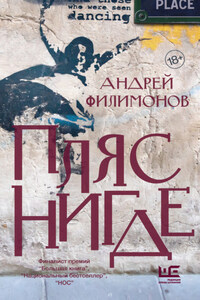Only the good little snakes were permitted to enter the "Eden" that belonged to Aunt Jerry and Uncle Cornie Darby. "Eden," it should be explained, was the country estate of Mrs. Jerusha Darby – a wealthy Philadelphian – and her husband, Cornelius Darby, a relative by marriage, so to speak, whose sole business on earth was to guard his wife's wealth for six hours of the day in the city, and to practise discus-throwing out at "Eden" for two hours every evening.
Of course these two were never familiarly "Aunt" and "Uncle" to this country neighborhood, nor to any other community. Far, oh, far from that! They were Aunt and Uncle only to Jerry Swaim, the orphaned and only child of Mrs. Darby's brother Jim, whose charming girlish presence made the whole community, wherever she might chance to be. They were cousin, however, to Eugene Wellington, a young artist of more than ordinary merit, also orphaned and alone, except for a sort of cousinship with Uncle Cornelius.
"Eden" was a beautifully located and handsomely appointed estate of two hundred acres, offering large facilities to any photographer seeking magazine illustrations of country life in America. Indeed, the place was, as Aunt Jerry Darby declared, "summer and winter, all shot up by camera-toters and dabbed over with canvas-stretchers' paints," much to the owner's disgust, to whom all camera-toters and artists, except Cousin Eugene Wellington, were useless idlers. The rustic little railway station, hidden by maple-trees, was only three or four good discus-throws from the house. But the railroad itself very properly dropped from view into a wooded valley on either side of the station. There was nothing of cindery ugliness to mar the spot where the dwellers in "Eden" could take the early morning train for the city, or drop off in the cool of the afternoon into a delightful pastoral retreat. Beyond the lawns and buildings, gardens and orchards, the land billowed away into meadow and pasture and grain-field, with an insert of leafy grove where song-birds builded an Eden all their own. The entire freehold of Aunt Jerry Darby and Uncle Cornie, set down in the middle of a Western ranch, would have been a day's journey from its borders. And yet in it country life was done into poetry, combining city luxuries and conveniences with the dehorned, dethorned comfort and freedom of idyllic nature. What more need be said for this "Eden" into which only the good little snakes were permitted to enter?
In the late afternoon Aunt Jerry sat in the rose-arbor with her Japanese work-basket beside her, and a pearl tatting-shuttle between her thumb and fingers. One could read in a thoughtful glance all there was to know of Mrs. Darby. Her alert air and busy hands bespoke the habit of everlasting industry fastened down upon her, no doubt, in a far-off childhood. She was luxurious in her tastes. The satin gown, the diamond fastening the little cap to her gray hair, the elegant lace at her throat and wrists, the flashing jewels on her thin fingers, all proclaimed a desire for display and the means wherewith to pamper it. The rest of her story was written on her wrinkled face, where the strong traits of a self-willed youth were deeply graven. Something in the narrow, restless eyes suggested the discontented lover of wealth. The lines of the mouth hinted at selfishness and prejudice. The square chin told of a stubborn will, and the stern cast of features indicated no sense of humor whereby the hardest face is softened. That Jerusha Darby was rich, intolerant, determined, unimaginative, self-centered, unforgiving, and unhappy the student of character might gather at a glance. Where these traits abide a second glance is unnecessary.
Outside, the arbor was aglow with early June roses; within, the cushioned willow seats invite to restful enjoyment. But Jerusha Darby was not there for pleasure. While her pearl shuttle darted in and out among her fingers like a tiny, iridescent bird, her mind and tongue were busy with important matters.
Opposite to her was her husband, Cornelius. It was only important matters that called him away from his business in the city at so early an hour in the afternoon. And it was only on business matters that he and his wife ever really conferred, either in the rose-arbor or elsewhere. The appealing beauty of the place indirectly meant nothing to these two owners of all this beauty.
The most to be said of Cornelius Darby was that he was born the son of a rich man and he died the husband of a rich woman. His life, like his face, was colorless. He fitted into the landscape and his presence was never detected. He had no opinions of his own. His father had given him all that he needed to think about until he was married. "Was married" is well said. He never courted nor married anybody. He was never courted, but he was married by Jerusha Swaim. But that is all dried stuff now. Let it be said, however, that not all the mummies are in Egyptian tombs and Smithsonian Institutions. Some of them sit in banking-houses all day long, and go discus-throwing in lovely "Edens" on soft June evenings. And one of them once, just once, broke the ancient linen wrappings from his glazed jaws and spoke. For half an hour his voice was heard; and then the bandages slipped back, and the mummy was all mummy again. It was Jerry Swaim who wrought that miracle. But then there is little in the earth, or the waters under the earth, that a pretty girl cannot work upon.










